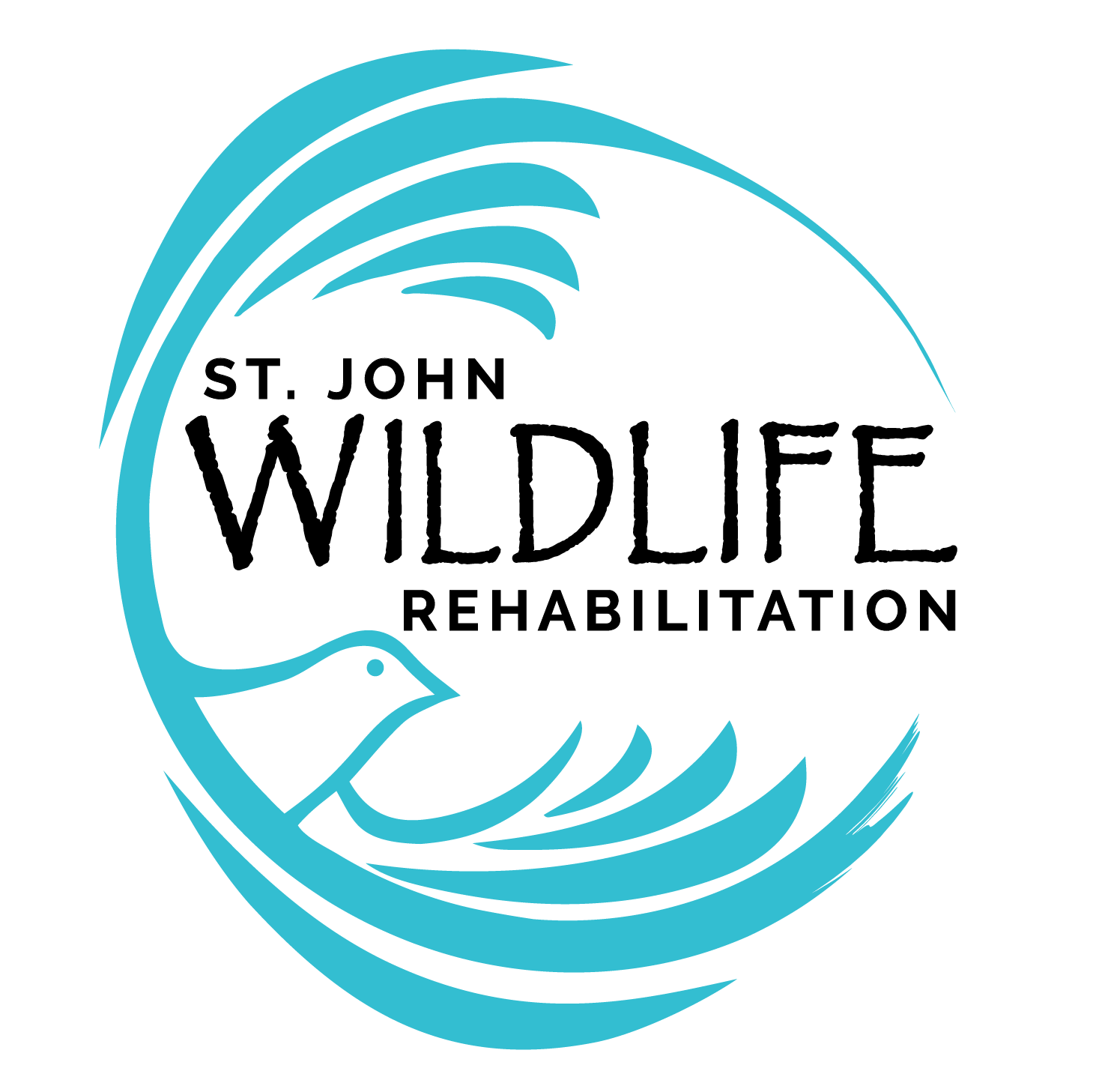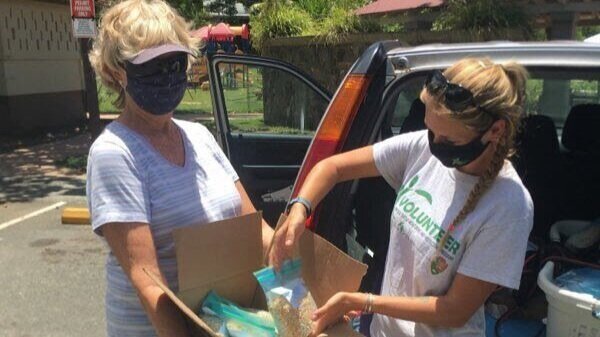How Can You Help?
Get Involved
If you have had an injured or orphaned bird on St. john or St. Thomas, you likely have brought the bird to one of us or sent it over by ferry. We work with all native species and try to help avoid human/animal conflict through education. Achieving a positive outcome wherever possible is our goal. Animals deserve a second chance. That’s the goal of St. John Wildlife Rehabilitation. Many animals coming in for care are injured or orphaned due to human interaction: window strikes, being hit by cars, trees cut down, getting caught in fishing line or discarded trash. Some of these negative events can be avoided: don’t feel wild or feral animals; it can lead to injury or illness and is against the law. What is the price of a clean window? We usually get calls about window strikes within 24 hours of house windows being cleaned. Please try to avoid cleaning windows unless absolutely needed especially if you have nesting birds nearby. Overall, as development on island grows, natural habitat is reduced; this lessens chances for these animal to survive.
There are a number of ways to get involved short or long term.
Donate
Please donate! We are self-funded, do not receive any money from the National Park or government but need money for food, medicine and basic rehabilitation supplies. Help us give these animals a second chance and make an important difference to wildlife animals on our island.
Longer term, we are looking to purchase land and build a wildlife rehabilitation clinic.
Can you help us achieve that goal?
Volunteer
There are only a few wildlife rehabilitators on St. John. We are looking to train and provide supplies to people interested in learning how to care for injured, sick or orphaned wildlife, or join our Wildlife Response Team and help transport animals that need care.
We also have volunteer opportunities for people who are remote, or want to help in other ways.
Would you like to help animals that need care?

Wish List
We would love a gift card from Amazon, Chris’s Squirrels and More, Jeffers Pet or New York Bird Supply
to help us buy supplies for injured animals.
Please email gift cards to info@stjohnwildliferehab.org or mail to :
St. John Wildlife Rehabilitation
9901 Emmaus
St. John, VI 00830
You can also support us by designating our organization as your charity of choice when you shop at AmazonSmile and Amazon will send us a donation at no extra cost to you! This is a great and easy way to support us with your Amazon purchases. We are listed as our incorporated name, St. John Wildlife and Donkey Rescue, Inc. in the search tool. Here’s a link to help you get signed up: https://www.aboutamazon.com/.../how-to-sign-up-for...
Be Part of Our Public Education Campaigns
✓ PLEASE keep domestic cats indoors as much as possible or have them wear a breakaway collar with a bell. Our birds nest year round; many of our doves nest on the ground, making them easy targets for hunting cats. According to the American Bird Conservancy, "outdoor cats kill approximately 2.4 billion birds every year.”
Learn more: American Bird Conservancy, Cats and Birds; CNN, When Cats Are Free To Roam, Wildlife Suffers
✓ PLEASE place decals on large windows or sliding glass doors to help avoid bird strikes. Please try to avoid washing house windows if birds are nesting nearby, or during bird migration in the fall through spring. Many fatal bird strikes happen the day after windows are cleaned - something which saddens homeowners unaware of the connection. Contact us if you would like window decals.
✓ PLEASE cut the strings off of your face masks as they can harm birds and sea life.
✓ PLEASE only use all-natural sunscreens that do not contain Oxybenzone (Benzophenone-3, BP-3) or Octinoxate as they disrupt coral reproduction, cause coral bleaching, and damage coral DNA. Oxybenzone is found in over 3500 sunscreen products worldwide. Here's a list of good choices: 10 Best Reef-Safe Sunscreens That Protect You and the Environment
Ø PLEASE DON’T “kill with kindness” by feeding the donkeys along the roadway; this encourages them to come to vehicles and risk being hit. Improper feeding can also cause Equine Metabolic Syndrome (Cushings Disease - see photo of this St. John donkey)
Learn more: Equine Metabolic Syndrome: Causes, Signs, Treatment and Prevention
Ø PLEASE DON’T use inhumane glue traps or rodent poison. A poisoned rat or mouse may be eaten by a bird of prey or pet, sickening or killing an unintended animal.
Ø PLEASE DON'T use plastic straws as many end up in the ocean and harm sea life.
Ø PLEASE DON'T support cock fighting. It is animal cruelty and is prohibited by federal law in every state, including the VI territory. As per the HSUS, “Even birds who aren't killed during cockfights suffer terribly. Regardless of how exhausted or injured they become (common injuries include punctured lungs, broken bones, and pierced eyes), the birds cannot escape from the fighting pit", unlike how they would fight in nature.
"Isn't cockfighting part of our heritage? While it is true that cockfighting has been practiced for centuries in various countries, including the United States, "old" does not necessarily mean right or even acceptable. At one time the United States allowed slavery, lacked child abuse laws, and refused women the right to vote."
Learn more: The Humane Society of the United States, Cockfighting fact sheet

Help Us Spread the Word About Our Current Projects
Currently we are working on Cracked Corn - Help us distribute cracked corn to feed ground-feeding birds after hurricanes.
One of our planned projects - to survey and do a health assessment of our feral donkey herd with veterinary students from Cornell University - was just about ready to begin, then the pandemic hit. It is a very exciting project that we will revisit as soon as it is safe to do so. We continue to seek support for this important effort.
For more information about these and other projects check out our News page.





